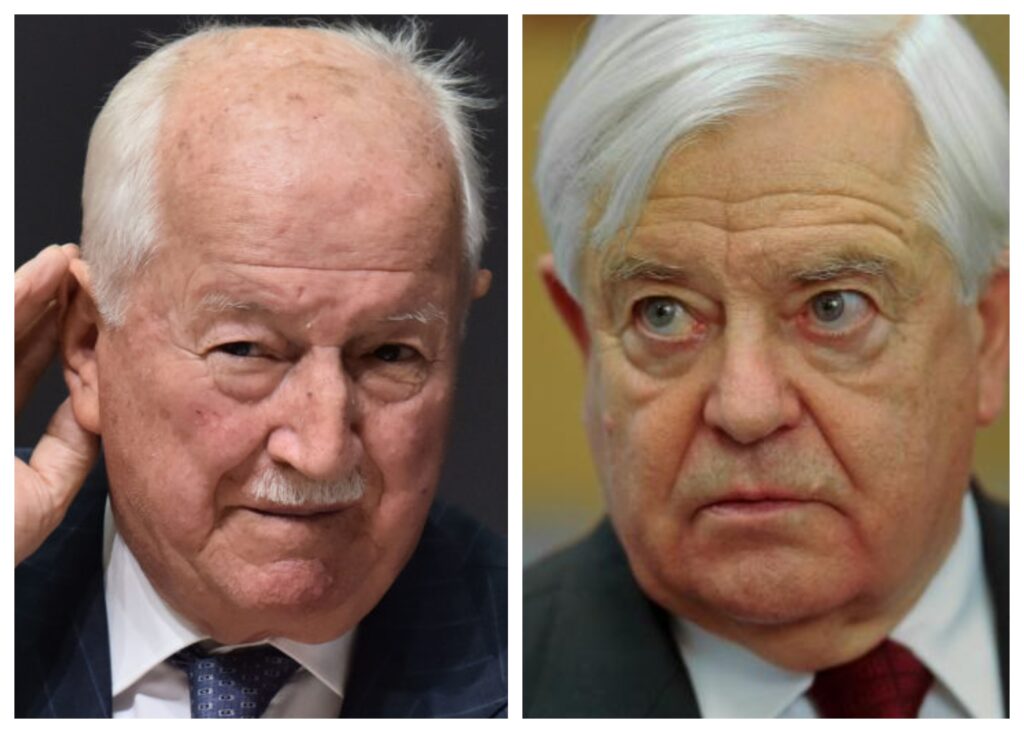A few days ago, we reported on the deafening silence of Odlazek’s media empire regarding the real estate of the Slovenian red nobility, which acquired luxury houses in elite locations in Ljubljana’s Murgle through the party lines. In the previous article, we took a closer look at the houses of the former party chief, Milan Kučan, and the last President of the presidency of the Socialist Federal Republic of Slovenia, Janez Stanovnik. But the aforementioned communist dignitaries are far from being the only two people who got their real estate in Murgle at a ridiculously low price.
The average visitor of Ljubljana would probably describe Murgle as a fairly ordinary suburb on the swampy ground in the southern part of Ljubljana, characterised by the beautifully grown tree-lined avenues, numerous walkways leading to the entrance doors of atrium houses, and spacious green areas, which is pleasantly removed from Ljubljana’s traffic.
However, at the beginning of the second half of the 20th century, this type of settlement was not considered too desirable in the wider social circles (wooden prefabricated houses, designed without a conscious search for architectural style, were built on the unfavourable boggy ground which was not suitable for high-rise construction or for agricultural cultivation), which made the prices of plots of land and real estate in Murgle relatively low at the time.
The communist elite enjoyed privileges that were inaccessible to the second-rate citizens
The price advantage of the Murgle real estate, however, was conveniently taken advantage of by all those who knew what the real situation is like – namely, members of the Yugoslav elite who knew of foreign examples of living, especially the Scandinavian ones, who thus knew what houses like the ones on sale in Murgle were really worth at the time. They were aware of the fact that for the price of an average apartment in a block of flats, they could get their own house with a garden here. This was also the reason why the houses in Murgle were quickly transferred to the ownership of the so-called Executive Council of the Assembly of the Socialist Republic of Slovenia, which was also responsible for granting real estate to officials at the time. In a few decades, as a result of these actions, a large part of the former communist elite moved here, and due to their political roles, these members of the party received the already low-cost real estate on a permanent lease for ridiculously low amounts.
Thus, all Slovenian red functionaries found their homes in Murgle, and the majority of them still live here today, as the former government apartments, which is what these houses were at the time, were bought by almost all former high-ranking party functionaries after the Slovenian independence, following the adoption of the so-called Jazbinšek’s Housing Act of 1991. The latter was conveniently adopted for the holders of housing rights of then-social housing, and the prices they had to pay for their homes were up to ten times lower than the real ones.
Today, the houses in Murgle are worth a fortune
Paying the same ridiculously low prices for their Murgle houses as Milan Kučan, who only paid what would amount to 35 thousand euros today (despite the fact that Kučan’s house’s real market value is estimated at half a million euros), the idyllic Murgle real estate was also bought by the Secretary-General of the Communist Party of Yugoslavia and the second most important Yugoslav politician Stane Dolanc (1925-1999); former Slovenian President, Prime Minister, and leading politician during the Slovenian transition to independence, Janez Drnovšek (who took over Dolanc’s house after the latter moved to Gorenjska – the house’s value is estimated at more than 420 thousand euros today); President of the Presidency of the Socialist Republic of Slovenia and long-time President of the Association of the National Liberation Movement of Slovenia Janez Stanovnik (the value of his house was estimated at more than 294 thousand euros); former first Director of the University Medical Centre in Ljubljana and speculator with public procurement of medical equipment (scandalous operating tables, overpaid vascular stents, etc.) Janez Zemljarič, whose “Murgle mansion” is said to be worth just under 400 thousand euros; Deputy Governor of the National Bank of Yugoslavia and Minister of Finance in Drnovšek’s government Mitja Gaspari, whose Murgle real estate was valued at over 266 thousand euros by the Surveying and Mapping Authority of the Republic of Slovenia; former Slovenian Minister of Education and Sports Pavel Zgaga, whose house is valued at 270 thousand euros, and many others.
Given these high amounts and the fact that they bought the aforementioned real estate at significantly lower prices than anyone else, does anyone still find the real estate of Janez Janša or any of the current Slovenian ministers, who bought their real estate at completely normal market prices, problematic?
Sara Kovač


